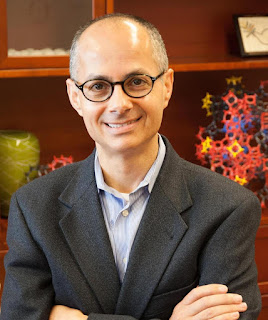Why there is no modern Muslim scientists
Why there is no modern Muslim scientists
There is no relationship between the science and your believe, if someone who has Islamophobia he will try to make a relationship between them thinking that changing your religion can make you follow the science more.
in fact there is a lot of Muslim scientists in both old and modern age, I don't want to put the scientists in categories based on their own believe but many people asked me to give more information about some Muslim scientists. Read: Why you shouldn't judge other cultures ?
Mohamed Abdus Salam is a Nobel prize winner (1979) he was given the prize for developing electroweak theory, he is one of the best physicists of the latter half of the 20th century.
Ahmed Zewail is also a Nobel prize winner (1999) he was given the prize in chemistry for his work on femtochemistry.
Aziz Samcar is another Nobel prize winner (2015) also in chemistry for work on DNA repair.
Mohamed El Baradei the 2005 Nobel Peace Prize was jointly awarded to El Baradei and IAEA "for their efforts to prevent nuclear energy from being used for military purposes and to ensure that nuclear energy for peaceful purposes is used in the safest possible way
Omar M. Yaghi is one of the 'Brilliant 10' scientists and engineers in the United States in 2006, due to his work on hydrogen storage, he also received the Newcomb Cleveland Prize of the American Association for the Advancement of Science for the best paper published in Science (2007). and He is the recipient of the American Chemical Society Chemistry of Materials Award (2009). Omar M. Yaghi is the second most cited chemist in the world (2000–2010).
Mostafa El-Sayed won the Irving Langmuir Award in Chemical Physics. He has been the recipient of the 1990 King Faisal International Prize ("Arabian Nobel Prize") in Sciences, Georgia Tech's highest award, "The Class of 1943 Distinguished Professor", an honorary doctorate of philosophy from the Hebrew University, a Sherman Fairchild Distinguished Scholar at the California Institute of Technology and an Alexander von Humboldt Senior U.S. Scientist Awardee.
Mostafa El-Sayed served as editor-in-chief of the Journal of Physical Chemistry from 1980–2004 and has also served as the U.S. editor of the International Reviews in Physical Chemistry. he was awarded the 2007 US National Medal of Science "for his seminal and creative contributions to our understanding of the electronic and optical properties of nanomaterials and to their applications in nanocatalysis and nanomedicine, for his humanitarian efforts of exchange among countries and for his role in developing the scientific leadership of tomorrow." he was listed #17 in Thomson-Reuters listing of the Top Chemists of the Past Decade.
Read Also : Famous Muslims that you may not know
Read Also : Famous Muslims that you may not know
We must not forget that today all the scientists are working together, the Egyptian will discuses his idea with the American and they will do their experiments in Germany with a help from the Japanese.







Post a Comment